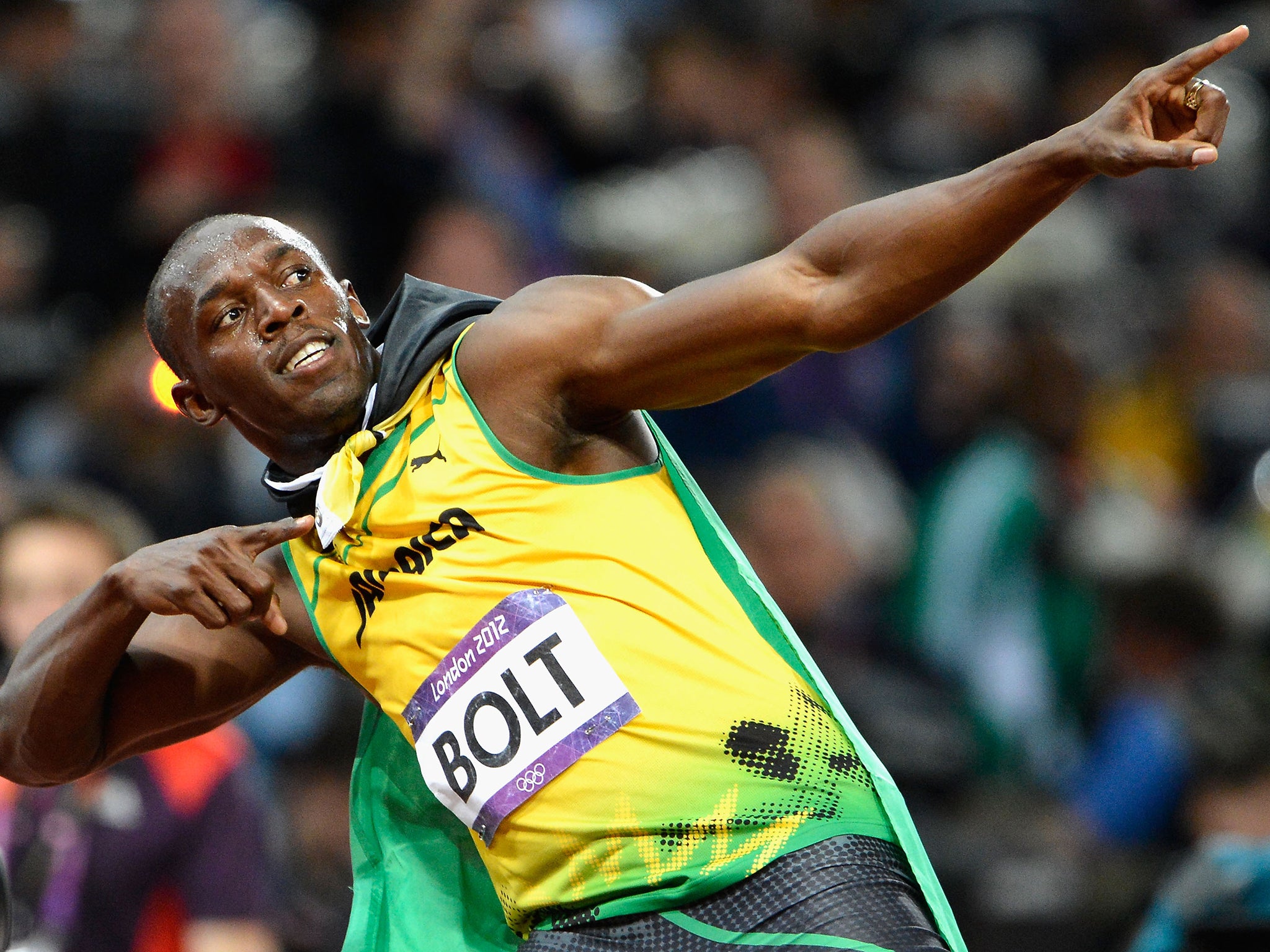The Bolt Supremacy: Inside Jamaica’s Sprint Factory, by Richard Moore - book review
Why the fastest men in the world may be impossible to catch

Pity Richard Moore, the sports writer whose new book sets out to answer the question of whether Jamaican sprinters are winning thanks to doping. For years he was a cycling obsessive, covering all the greatest races and riders. Then the sport he loved was tarnished, almost fatally, by the Lance Armstrong scandal. As he writes here, he could not wait to escape the “toxic atmosphere” of the Tour de France and the spectacle of poor Sir Bradley Wiggins being asked day after day if he was cheating.
Sprinting – with its joyous, charismatic Jamaicans eating up the track and the love of the crowd – must have seemed the perfect antidote. Watching the Olympics in London in 2012 he says there was “no cynicism, no angst”, just “innocence and joy”.
If only life were so simple. By the subsequent athletics world championships in Moscow many of Jamaica’s top names had failed drug tests and the former head of its anti-doping commission exposed how haphazard testing of the team had been before London. Can nothing in sport be innocent and joyous any more?
This book is Moore’s attempt to find an answer. He interviews Jamaica’s top coaches, anti-doping officials, and many of its athletes, but not Usain Bolt (though he does spend time with his family).
What emerges is a portrait of a country consumed by the culture of sprinting. This is their Premier League, NBA, and World Series rolled into one. It is a place where sprinters are lionised, politicians boast of their own youthful running prowess, and children of 10 can be household names due to their speed on the track.
The complex mixture of ingredients that resulted in Jamaica’s dominance includes the British colonial legacy of island-wide running races, the presence of a handful of inspirational coaches, the genes, the poverty and, even, the love of yams, whose chemical structure is identical to human testosterone.
The Bolt Supremacy fails to establish the extent to which drugs are behind Jamaica’s success. The closest it gets is by demonstrating how the chaotic reality of the Jamaican state makes the idea of some East German-style, state-backed doping programme absurd.
The country’s first dope tester reveals one of his greatest challenges was that the male athletes were unwilling to let him view their penis when they gave a sample – which is required to ensure no trickery. They presumed, in Jamaica’s homophobic culture, that his insistence was evidence of his homosexuality.
The closest Moore gets to a conclusion is his emphasis that when asked about doping Bolt answers “I’m clean”, while Armstrong would always say: “I’ve never tested positive.”
What this book does do is capture the spirit of the sport in Jamaica, where crowds fill stadiums to watch schoolchildren run with passion that would put Wembley to shame. In that, at least, there is still an innocence and joy. Moore clearly revelled in this grass roots exuberance and it is hard, reading this book, not to do so too, despite all the questions that may remain around sprinting’s superstars.
Subscribe to Independent Premium to bookmark this article
Want to bookmark your favourite articles and stories to read or reference later? Start your Independent Premium subscription today.

Join our commenting forum
Join thought-provoking conversations, follow other Independent readers and see their replies